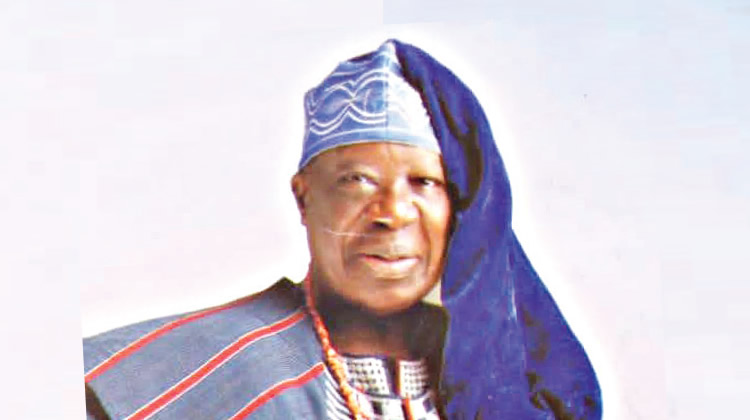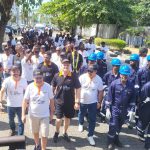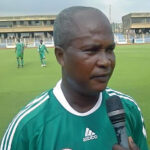
At 89, Mr Adedoja Adewolu sits as Board Chairman, University of Benin Teaching Hospital. In this interview with EMMANUEL OJO, the octogenarian takes a trip down memory lane
You celebrated your 89th birthday on October 1…
That’s correct.
How do you feel about your birthday coinciding with Nigeria’s Independence Day?
(Laughs) Well, I will say Nigeria is 62 and I’m 89. I want to thank God for that. Nigeria got independence in 1960. I was already in England then. I was in London in 1960 and I was in the St. Albans Hall when the Nigerian flag was lifted up. I was one of those from the Western Region of Nigeria who were sponsored by (the late) Chief Obafemi Awolowo to go for special training and so, I was so delighted. I was a member of the Nigerian Union of Students in Great Britain at that time. So, I’m delighted that every year, my birthday has been celebrated. The most important ones were the ones I celebrated between 2011 and 2019, as the governor of Ogun State at that time happens to be my cousin. He made sure that three cakes were brought to the Moshood Abiola Stadium. One of the cakes was for Nigeria, the second for Ogun State and the third was for October 1 birthday celebrants, which I was one of them. It was a wonderful experience. So, I’m happy to be celebrating my birthday like Nigeria.
In those days, many people were not so certain about their actual birth dates due to poor record keeping and the level of civilisation then. Some used market days and other parameters to estimate the dates. How did you arrive at yours and how certain are you about the date?
My father was a very wealthy cocoa farmer and he was lucky he had younger and older sisters who had children before him because he had a delay. So, he was the one who sent the children of his sisters to school. He assisted in sponsoring their education and they were the ones who took the records. For instance, Reverend Ayodele Soleye, who is one of them, was the one who wrote down my birth date and showed it to me. The birth of all the children that my father had and all my father’s activities were recorded by him. So, at that time, they were exposed and educated. They went to the Government College, Ibadan, King’s College in Lagos and they were very creative. My father took care of them and assisted to sponsor their education. One of them too, Adewale Odule, took record of all the activities of my father then, even the piece of land my father bought then. That’s one thing I am grateful for.
For many other people that were born around that time, their mothers only told them that they were born on a particular market day but in my case, we had educated ones that were able to take the records and I still have the book in which it was recorded.
When Awolowo introduced free education, many people took advantage of it and I can say that in Abeokuta, we had the first educated woman, Funmilayo Ransome-Kuti, who was also the first woman ever to drive a car in Africa. She was the wife of I.O. (Israel Oludotun) Ransom-Kuti, the the Principal of Abeokuta Grammar School, which I attended. She was also the mother of (the late) Beko and Fela.
There were also the Ademolas, who started education. He (their patriarch) went to Cambridge and later became the first indigenous Chief Justice of Nigeria. So, at that time, we had people who had been studying abroad. Also, in Nigeria, the most educated people were from this part of the country (South-West) – the first doctor, first lawyer and the like. I was also privileged to interact with the first professor in medicine, Ogunlesi, who taught medicine in Ibadan, Oyo State and many others.
How was the situation in the country at that time?
At that time, it was all fantastic because there were three regions at that time – the Northern Region, Eastern Region and the Western Region and, of course, each region was governed by its premier. The premier of the Western Region was Chief Obafemi Awolowo, that of the Eastern Region was Nnamdi Azikiwe; while Ahmadu Bello was the premier of the Northern Region. Each of the regions had their accounts with the British Government and Awolowo had a lot of savings there for the Western Region, which were earnings from cocoa export. Groundnuts were from the North; that was where we had the pyramids of groundnut; and palm oil from the East. The thing is, each region had its own budget, but Awolowo was the best of them all at that time. He introduced free education and that was even before the country gained independence. The Western Region had the first television station; had the best stadium, Liberty Stadium, and had the tallest building in the whole of West Africa – Cocoa House in Ibadan.
When Nigeria got independence and was going to have the Federal Government, it was noted that all the money from the regions was to be gathered together and given to the Federal Government so that the Federal Government could be in control. We, the students from the Western Region in England, were rudely surprised and we were told to go and demonstrate that the Federal Government should not merge all the accounts together, but rather that the accounts should remain separate. That was the first time some of us went to 10 Downing Street (UK Prime Ministers’ residence) in England, carrying placards and that was how each region was allowed to keep its account, keep its secretariats and continued its education policy.
At that time, Awolowo sent people from each section of the Western Region to study different educational policies. MKO Abiola was sponsored to study Accountancy, just like so many other people. I was sponsored to study Hospital Administration and Management; and today, I’m delighted to say that I have got to the apex of my profession. Today, as you can see, I am the Chairman of University of Benin Teaching Hospital. I am a health administrator. I am in charge of mental health. I studied Hospital Administration and specialised in mental health. I’m so delighted to celebrate my birthday every October 1. As you can see, my family, friends and well-wishers have always advertised my birthday in The PUNCH and I’m happy for that because The PUNCH is the most widely read paper in Nigeria today.
How were your early days like?
My early days were very interesting. I happened to have come from the village. My father was a cocoa farmer and of course he was very wealthy. He had six wives and I am not one of his first five children but by the grace of God, today I happen to be the head because I was lucky to have started school in 1943. I went to Baptist Day School in Abeokuta and from there I went to the prestigious Abeokuta Grammar School, which is the oldest secondary school in Nigeria and the only school even in the colonial days that was not run by the imperialists. You can’t compare it with the like of Igbobi Grammar School and the rest. Of course, I was lucky, my classmates were eminent people like the late Fela Anikulapo-Kuti, the late Beko Ransome-Kuti, the late Balogun of Egbaland, the late Chief Soetan and, of course, the living ones like Robert Clark, SAN, and Chief Adedapo Adewale Tejuosho, who was the senior prefect in my year at the Abeokuta Grammar School. We were very lucky that the late Reverend I. O. Ransome-Kuti was our principal. He was a disciplinarian. He started the Nigerian Union of Teachers. He was the father to the best Health minister we ever had in Nigeria – Olikoye Ransome-Kuti.
When I started primary school, my classmates were all Muslim – MKO Abiola, Debola Ajibola and the like. In Abeokuta Grammar School, Kuti was the principal. He had a policy of whether you are a Christian or not, so long as you are in the boarding house, you must go for morning prayers, which was at 6am and it was for one hour. In the evening, all the boarders must also gather to have prayers and we were taught Bible verses, which we memorised.
My going to Abeokuta Grammar School changed my philosophy. By the grace of God, today I’m a Christian and a member of the Full Gospel Business Men’s Fellowship International.I am also very happy for the woman I married.
How did you meet her?
While I was in Abeokuta Grammar School, she was in Holy Child College in Lagos, which was the best girls’ school in those days. She went to England to study Law and today, she is a retired high court judge. She is one of the judges who were appointed in 1976 when Ogun State was created. We have six children – three boys and three girls, three of them are lawyers today.
When we were young, myself, Dr Dolapo Shoneye and (Olusegun) Obasanjo used to trek from Ifo to our village and we grew up together and up till date, Chief Obasanjo and I are still very close, just like my other friends. Even on my birthday that I celebrated, Chief Dolapo Shoneye and Obasanjo came and we had a thanksgiving in my house. By God’s grace, that of next year, when I will be 90, it will be done in the Presidential Library in Abeokuta.
Some children from polygamous homes are usually influenced to also toe the path of polygamy. What made your case different?
Well, the reason is that my father told us his history, that he didn’t want to be a polygamist but after he got married, for the first 10 years, he didn’t have a child. He married the second wife and yet no child. After about 15 years, the Ifa oracle told him that he had to leave Abeokuta and go to a village and when he got to the village, that was when he was lucky. The second wife happened to be my mother and the wives were able to conceive and have children. After that, because he was a wealthy cocoa merchant and money was coming and being a Muslim, they told him he had to marry four wives; so, he married more wives. I have other siblings and we are doing very well. One of my brothers is a former attorney.
Most of your classmates and friends are into politics. Are there reasons why you didn’t venture into politics?
The reason I didn’t venture into politics was because my father had the opinion that most politicians don’t live by their words. Awolowo was one man that lived by his word and my father was very close to him and he supported him. I can’t go into politics because my dad advised me not to. He preferred that I stay with my profession. I have people who went into politics but for me, it’s a no and I thank God.
So, you have no regret about that decision now?
Not at all. I don’t have any regret about it. Some of my friends who went into politics were not so happy at the end of the day.
At 89, you are the board chairman of UBTH, Benin, Edo State. Many at your age would have retired. What has kept you going at this age?
The grace of God has kept me going and even as I’m talking to you, I have been asked to come to Abuja for some assignments. We have 32 teaching hospitals, specialist hospitals and Federal Medical Centres and we have chairmen of all these and a forum of chairmen and I’ve just been elected as the vice chairman of that forum now. We have the mandate to bring all the teaching hospitals, specialist hospitals and Federal Medical Centres to standard and to encourage and advise the government on the training of doctors, pharmacists and medical specialists. I thank God that I am able to do as much as I am able to, by the grace of God. This time last week, I was in Abuja where I graced the occasion at the International Conference Centre where the President presented national awards of honours to some people. Three of my friends were awarded national honours. It was a wonderful programme and the President stood for hours, shaking the hands of people.
Do you have any memories of the civil war?
Yes and I was not so happy about the Biafran war. I was in England at that time and when the war started, we were shocked. We were shocked about how the war was planned and how it came to be.
When you look back at the years gone by, do you have any regrets about something you did or didn’t do?
No. I thank God that He has always been good to me and because I believe so much in God He has never disappointed me.














